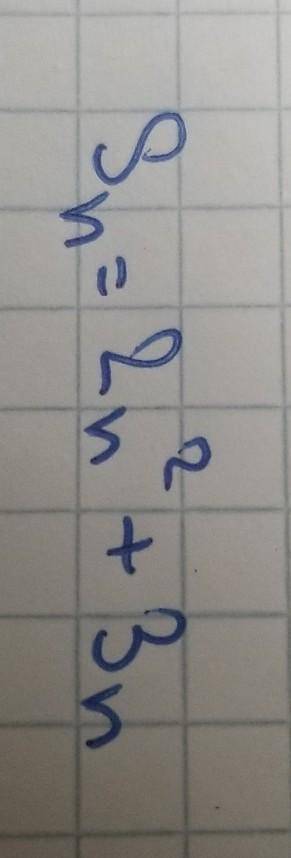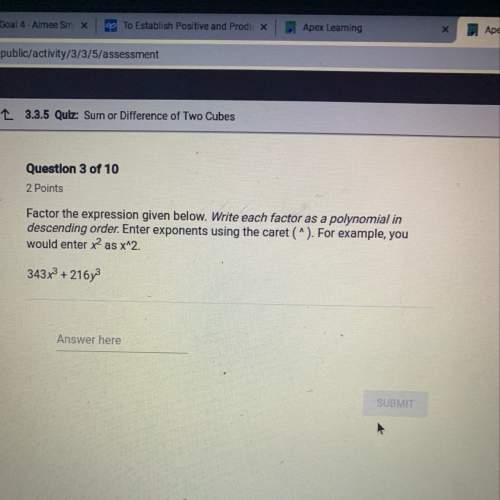
Mathematics, 29.12.2020 22:20 CodyJ4503
The sum of the first (n) terms of the sequence is given by the formula (given below) . If this sequence is a geometric progression, find q. If this sequence is an Arithmetic progression, find d


Answers: 1


Another question on Mathematics


Mathematics, 21.06.2019 20:20
One of every 20 customers reports poor customer service on your company’s customer satisfaction survey. you have just created a new process that should cut the number of poor customer service complaints in half. what percentage of customers would you expect to report poor service after this process is implemented? 1.) 5% 2.) 10% 3.) 2% 4.) 2.5%
Answers: 1

Mathematics, 21.06.2019 21:00
Can some one explain how to slove specifically, what is the value of x? 0.9(x+1.4)-2.3+0.1x=1.6 enter the answer as a decimal in the box. x= ?
Answers: 2

Mathematics, 21.06.2019 21:30
The expression 1.01*1.005(^t) gives the amount of money, in thousands of dollars, in carter's savings account (t) years after he opens it. what does 1.01 represent in this expression?
Answers: 1
You know the right answer?
The sum of the first (n) terms of the sequence is given by the formula (given below) . If this seque...
Questions


Physics, 29.09.2021 01:40



Mathematics, 29.09.2021 01:40

Physics, 29.09.2021 01:40





English, 29.09.2021 01:40







Chemistry, 29.09.2021 01:40





